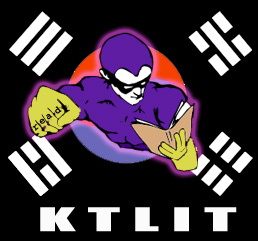 An article from World Literature Today about the need to, ‘Reterritorialize Working-class Literature in Contemporary Korea.‘ It’s interesting because it seems as though the author has all the details and history right, but then comes to a conclusion that does not seem sensible to me.
An article from World Literature Today about the need to, ‘Reterritorialize Working-class Literature in Contemporary Korea.‘ It’s interesting because it seems as though the author has all the details and history right, but then comes to a conclusion that does not seem sensible to me.
And, yeah, I know that anyone who uses the word “reterritorialize’ is probably a first-year grad student somewhere — LOL, wait, no.. what.. it’s a professor and at Hankuk University at that: Eun-Gwi Chung is associate professor at Hankuk University of Foreign Studies in Seoul, Korea.
Anyway, Professor Chung gives a useful history of the role of the concept of “working class” in Korean poetry (and I’d say her argument doubles for literature in general):
In Korea, discourse on working-class literature is traced back to Im Hwa, the central figure of KAPF (Korea Artista Proleta Federatio) in the 1920s. His poem “Suni at the Crossroads” summons Suni, a common name for a girl at that time, as the most lovable worker, the sister of all workers. Through Suni wandering the streets of Jongno, Seoul, the poet gropes for solidarity between the working class and the awakened intelligentsia. Working-class literature, passing through the turmoil of modern Korean history, such as the Korean War and the April 19 student revolution in 1960, was developed in its specific form as “literature of engagement.” The 1970s and 1980s witnessed its remarkable growth; the working class proceeded to be the center of political, social, and aesthetic transformations in the yearning for political democracy.
And then she hops to the IMF Crisis at the end of the 20th Century which, she notes, changed everything. But then her argument gets starts to lose me, and in ways I might have predicted. Chung accurately notes that recently:
iterature seemed to voice its presence only as a remnant and reminiscence, buried in the private inner thoughts of everyday life. Titles such as “Is Working-class Literature Dead?” and “Present or Absent: Working-class Literature” captured the social and political crisis of the working class and reflected the decline of its literature. Meanwhile, the working condition of workers has worsened: workers have become stratified, fragmented, marginalized, and dissipated, with many sectors of work completely erased. Sharp divisions between fixed-term employment and temporary employment became a pivotal issue. Today the working class does not appear as a unified force in this multilayered society; it is profoundly divided, its vanguard dispersed, and its striking force blunted. In 2013, 45.9 percent of salary workers in Korea are temporary workers, their salary is 49.5 percent of fixed-term workers, and the minimum hourly wage for temporary workers is 4,850 won, or around $4.20, less than the price of a hamburger. With the fragmentation of the working class itself, working-class literature seems to retreat to the back alley of history.
All of which is true, and all of which is why working class literature as known by Im Hwa is no longer ascendant and no longer important. The fact is the ‘working class’ of Korea has been shattered and reconstituted as part of an international, fragmented, and powerless class whose status is dropping below “working class.” This, of course, is also true of most other first-world countries and certainly true of third world ones. Thus, to reterritorialize (that word again!) it seems a kind of nostalgia, and dangerous in that it glamorizes a certain kind of gritty economic status that no longer exists. It seems as though new territory is retired, not reworking the territory first marked out three economic eras ago.
The last paragraph retreats into academic/poetics, so read it at your own peril, but do read the bulk of the article for it’s quite accurate account of history, while being wary of its call to return to that history.


